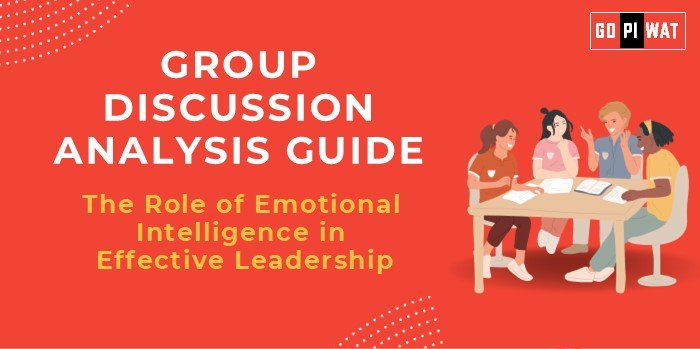🌟 The Role of Emotional Intelligence in Effective Leadership
🌐 Introduction to Emotional Intelligence in Leadership
Leadership today demands more than just technical skills. Emotional Intelligence (EI) — the ability to understand and manage emotions — has emerged as a critical component of effective leadership in both corporate and managerial roles globally.
Popularized by psychologist Daniel Goleman in the 1990s, EI includes self-awareness, empathy, motivation, and interpersonal skills. Companies like Google, Microsoft, and Amazon have integrated EI-based leadership training to drive team performance and organizational success.
📊 Quick Facts and Key Statistics
- 💼 70% of Leadership Success: Studies suggest that up to 70% of leadership success depends on Emotional Intelligence (Goleman, 2021).
- 📈 Productivity Impact: Leaders with high EI can increase team productivity by 20% (Harvard Business Review).
- 🛡️ Stress Reduction: EI-focused leaders report a 40% reduction in employee stress levels.
- 🔄 Retention Rates: Organizations with emotionally intelligent leaders experience 30% higher employee retention rates.
- 🌍 Global Application: 71% of hiring managers value EI over IQ in leadership roles.
🏢 Stakeholders and Their Roles
- 🏢 Organizations: Create emotionally intelligent leaders through training and culture-building.
- 👨💼 Leaders/Managers: Implement EI practices to foster trust, empathy, and effective decision-making.
- 👩💻 Employees: Respond positively to emotionally intelligent leadership, leading to better collaboration.
- 🧠 Psychologists and Experts: Develop frameworks for assessing and improving EI.
🌟 Achievements and Challenges
✔️ Achievements
- 🤝 Enhanced Team Collaboration: High EI leaders encourage team cohesiveness and innovation.
- 📊 Decision-Making Improvements: Empathy helps leaders make better, people-oriented decisions.
- ⚖️ Conflict Resolution: EI reduces workplace conflicts by 60% (SHRM).
- 📈 Performance and Profit: Companies with high EI leadership outperform peers by 35% in profit.
⚠️ Challenges
- 📏 Measuring EI: Lack of standardized assessment tools hampers evaluation.
- 📉 Implementation Gap: Organizations fail to integrate EI training into leadership programs.
- 📚 Bias Towards IQ: Many still emphasize technical competence over soft skills.
🌍 Global Comparisons
- 🇺🇸 USA: Companies like Microsoft and Google prioritize EI training.
- 🇯🇵 Japan: Leadership focuses on empathy to build trust in teams.
💬 Structured Arguments for Discussion
- ✔️ Supporting Stance: “Leaders with Emotional Intelligence inspire trust, boost morale, and improve organizational efficiency.”
- ❌ Opposing Stance: “Overemphasis on emotions may hinder tough decision-making and rational leadership.”
- 🤝 Balanced Perspective: “While Emotional Intelligence is crucial, combining it with technical skills ensures holistic leadership.”
🎯 Effective Discussion Approaches
📈 Opening Approaches
- 📊 Data-Driven Start: “70% of leadership success depends on Emotional Intelligence — a critical trait for modern leaders.”
- 📖 Quote-Based Start: “As Daniel Goleman said, ‘Emotional Intelligence, not IQ, predicts success in leadership.’”
🔄 Counter-Argument Handling
- ⚠️ Example: “While critics argue that EI makes leaders soft, it actually enables them to make difficult decisions empathetically, reducing negative impacts on teams.”
📊 Strategic Analysis of Strengths and Weaknesses
- 💪 Strengths: Enhances decision-making, reduces conflict, improves employee satisfaction.
- 📏 Weaknesses: Difficult to quantify, risk of emotional bias.
- 🚀 Opportunities: Leadership programs incorporating EI, global adoption.
- ⚔️ Threats: Resistance to change, overemphasis on technical skills.
📈 Connecting with B-School Applications
📚 Real-World Applications
EI-based leadership can be applied to team projects, HR case studies, and strategic decision-making roles.
💬 Sample Interview Questions
- 🤔 “How can Emotional Intelligence influence decision-making during a crisis?”
- 📋 “Describe a time when Emotional Intelligence improved team performance.”
💡 Insights for B-School Students
- 🌟 EI can help students succeed in group projects, manage conflicts, and handle interview stress.


